

HEALTH
Boy’s Severe Headaches and Walking Struggles Lead to Shocking Rare Brain Condition Diagnosis!
Published
2 weeks agoon
By
OBS
A boy who struggled with norovirus-like symptoms and “excruciating” headaches was diagnosed with a rare brain condition and underwent life-threatening surgery.
Steph and Sam Gale, with children Harrison (11), Joshua (16), and Bella (8), will participate in RBC Race for the Kids in Hyde Park on Saturday, 11 October to raise funds for Great Ormond Street Hospital (Gosh).
The event follows Harrison’s successful brain surgery six months ago for an arteriovenous malformation (AVM) – a rare, life-threatening condition of tangled brain blood vessels.
“We are forever indebted to Great Ormond Street,” Sam, 41, said.
Steph, also 41, added: “We’re extremely lucky. That’s why we are doing the race. I don’t know what else you give back.
“We’re now part of this really lovely community, people that have been treated at Great Ormond Street or have had this kind of trauma.”
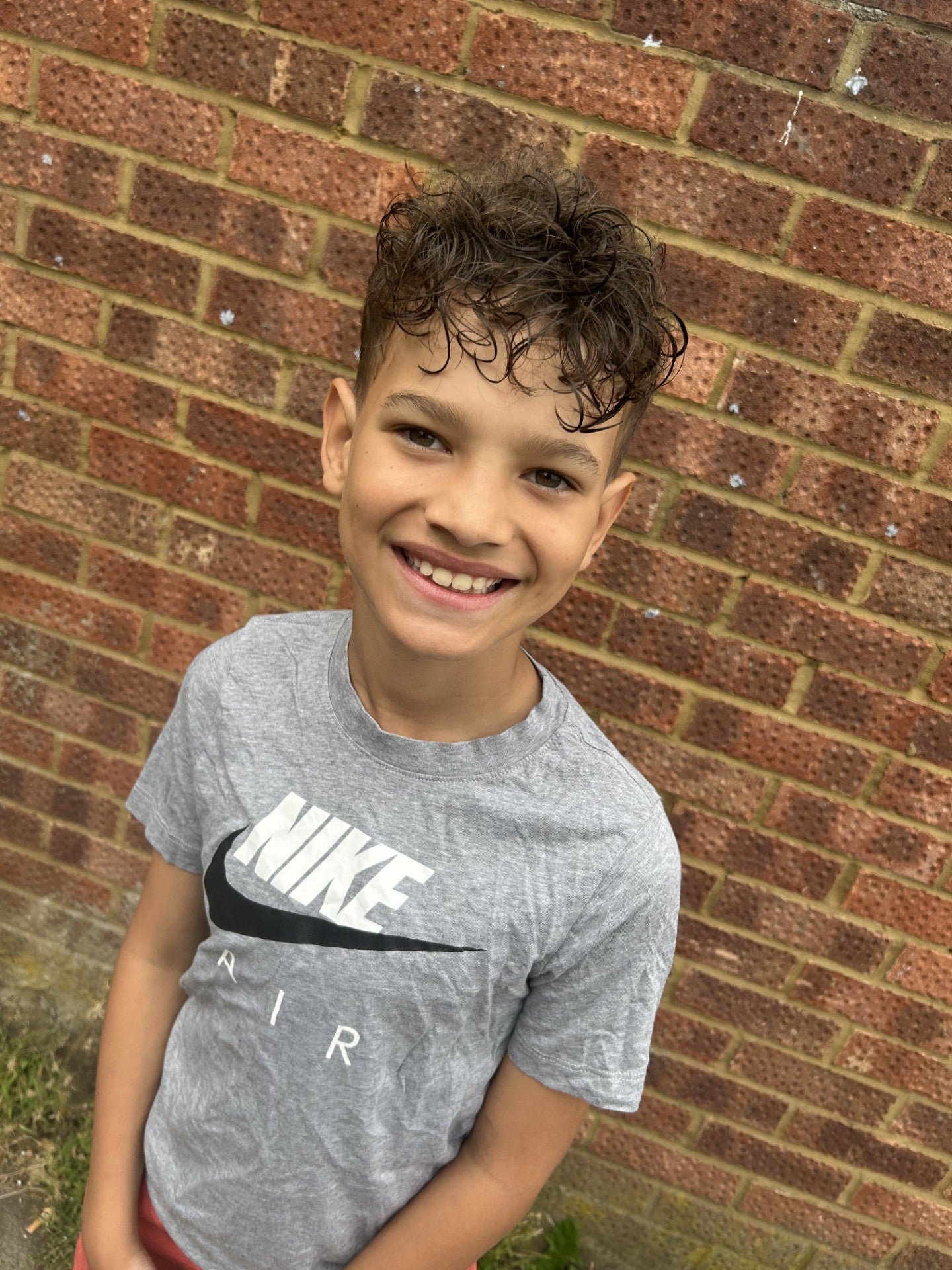
Harrison, from Isleworth, west London, became ill on Boxing Day evening 2024.
His parents thought he had norovirus as he was lethargic and being sick, but when the “excruciating” headaches continued for several days, they took him to West Middlesex University Hospital. His vital signs appeared normal but they were told he might be dehydrated.
Harrison seemed to be improving but in early January he was sick in bed, woke up screaming because of the pain in his head and kept collapsing when he tried to walk.
He was taken back to his local hospital where his vital signs again seemed fine.
“One doctor came on shift and she said, ‘We’re just going to do a CT scan, it will probably be nothing’,” Steph said.
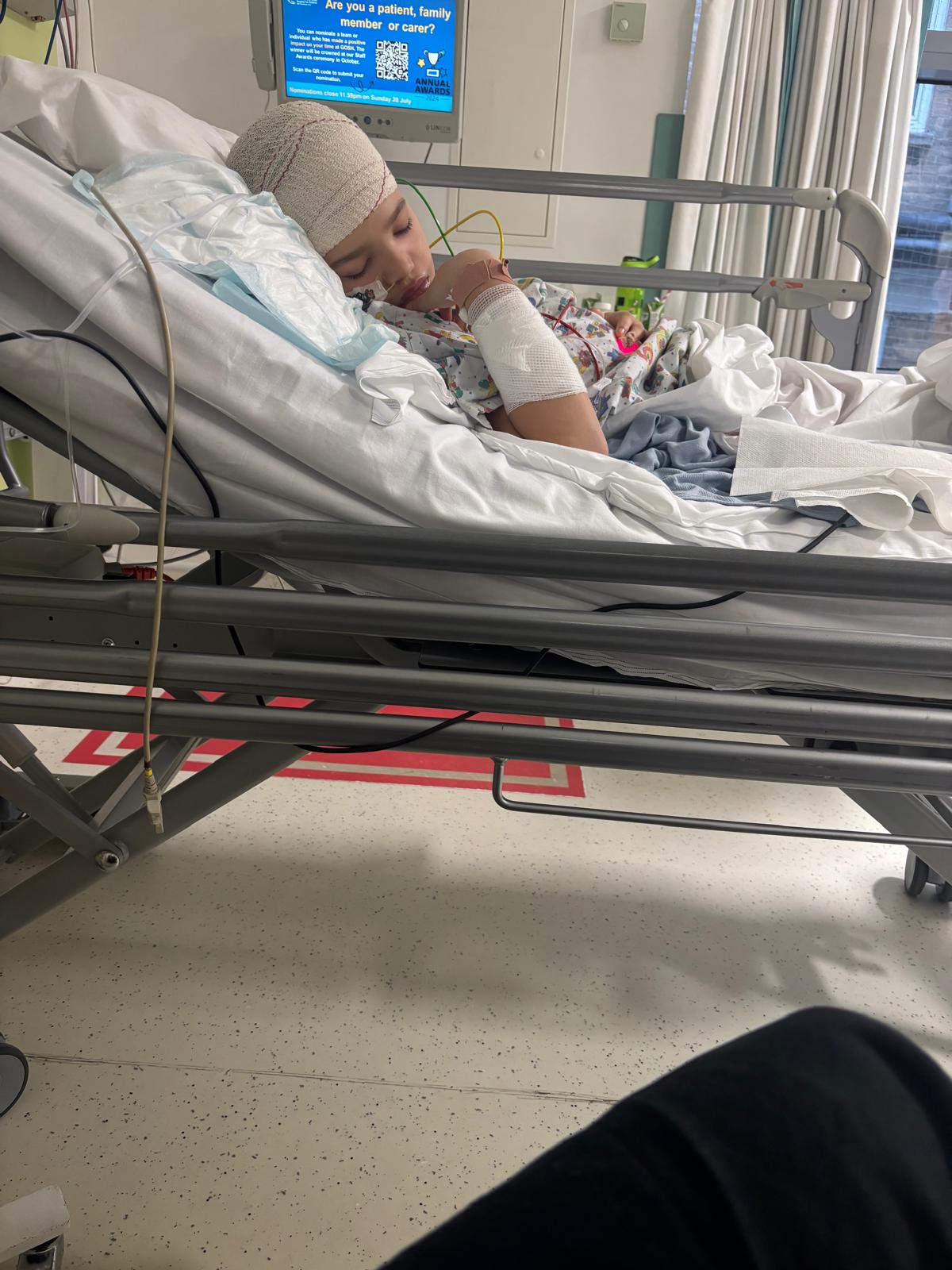
Soon after the scan they were told Harrison had suffered a bleed on the brain and Gosh wanted to see him.
“We all just broke down,” his mother said. “Harrison was out of it, really not aware of what’s going on.”
He arrived at Gosh in the middle of the night and was initially taken to intensive care while waiting for a bed on Koala Ward.
Steph said “we were zombies at this point” but praised the hospital staff for explaining what was happening and for giving them the keys for accommodation where they could get some rest.
“Unless you know Great Ormond Street and you’d been through it, I had no idea they had all these amazing things, that we could just be next door,” she said.
The family were told that Harrison was probably born with the AVM, pressure had caused the bleed and he would be treated by world-renowned specialists Dulanka Silva and Greg James.
“Knowing that was pretty amazing,” Steph said.
“At that point we were both like, ‘OK, we’re not going to Google this and we’ve just got to put our trust in these specialists that know so much’.”
Doctors had to wait for the swelling to go down before they could get an accurate picture of the AVM and advise on the next steps.
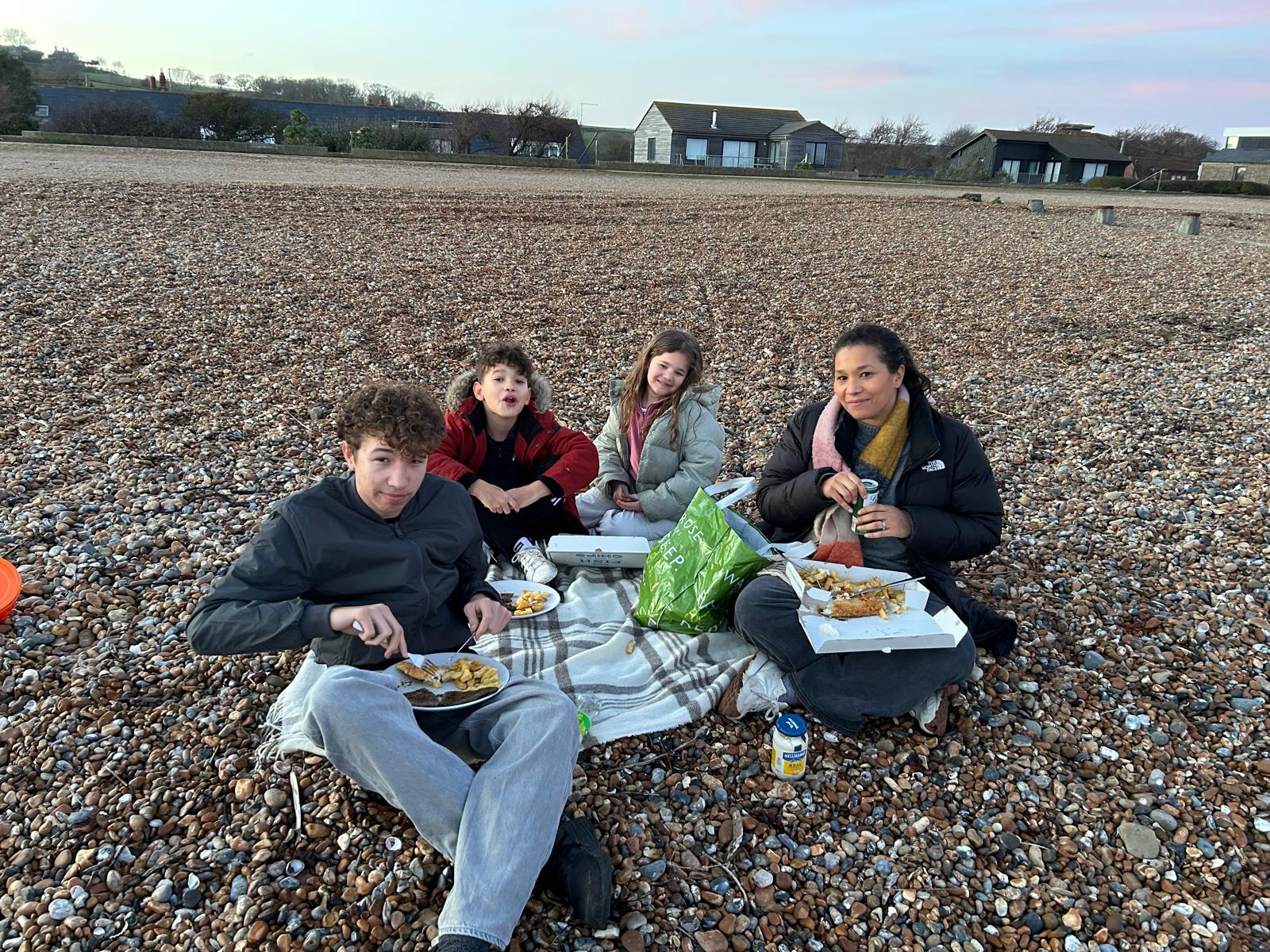
As the family waited, Harrison was able to move into his own room on Koala Ward and then go home to return to a relatively normal life.
He was very weak and could not walk for long periods but gradually became stronger.
There was “panic stations” when he had a headache and was taken back to West Middlesex University Hospital where a scan and a call to Gosh ruled out any further bleed.
Steph said: “The initial doctor who had said, ‘Let’s just do a CT scan, just in case, it’ll be nothing’, she happened to be on call and she popped in and she said, ‘Do you remember me?’
“I just broke down into tears and I was like, ‘You’ve saved his life’.
“That was quite a special moment.”
When the swelling was gone and the AVM could be assessed, consultants at Gosh said the best way forward was an embolisation to glue the blood vessels before surgery the following day to remove it.
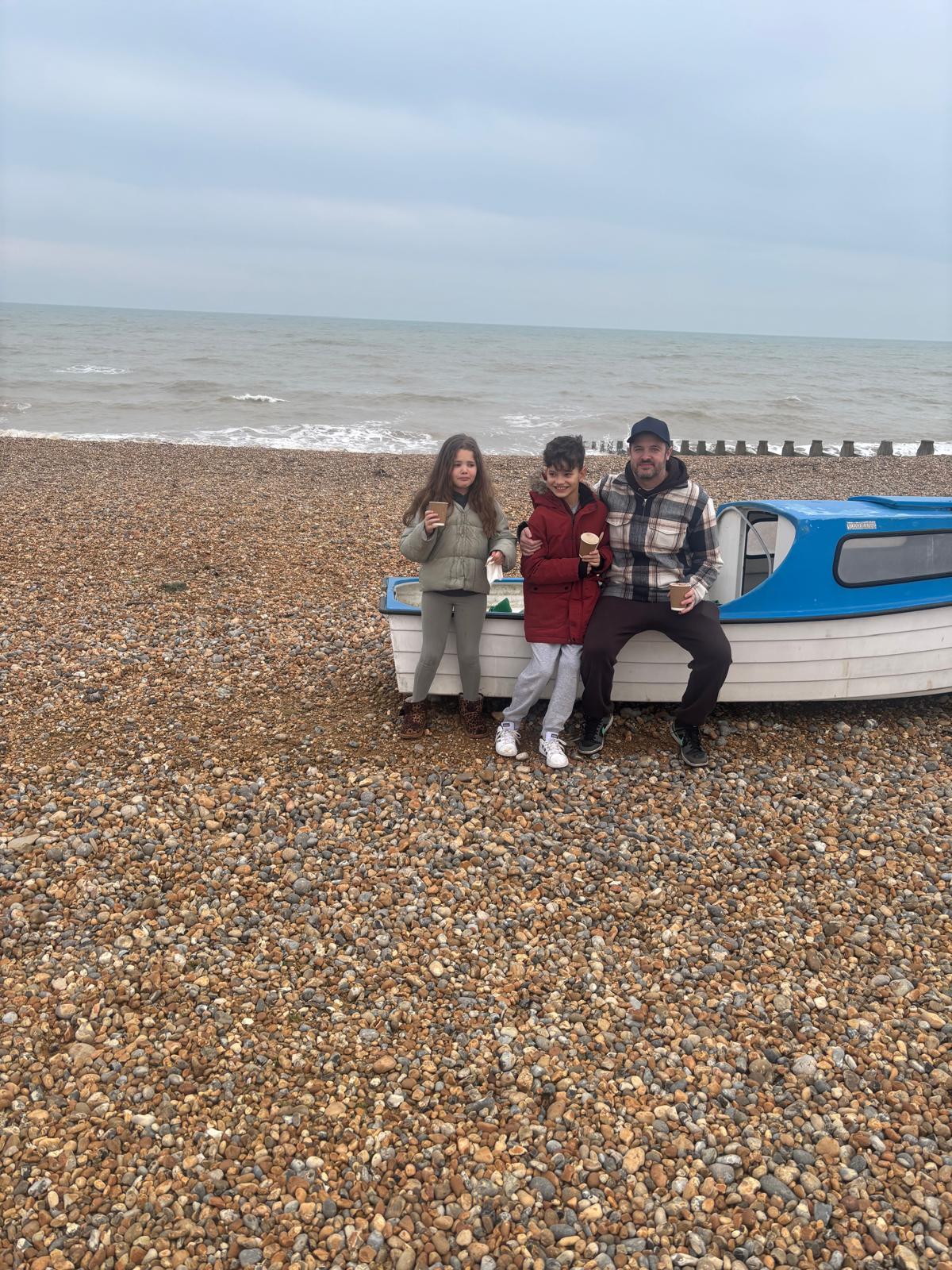
“Obviously again we put our trust in them. By this point they were like gods to us,” Steph said.
Initially planned for the end of February, the procedures had to be delayed and finally took place at the end of March.
“It’s the first time I have ever felt helpless,” Sam said.
Steph said saying goodbye to Harrison before his surgery “was the hardest thing”.
“We didn’t know if we were going to see him again. And that was really tough. I held it together until he went to sleep then we just both broke down.”
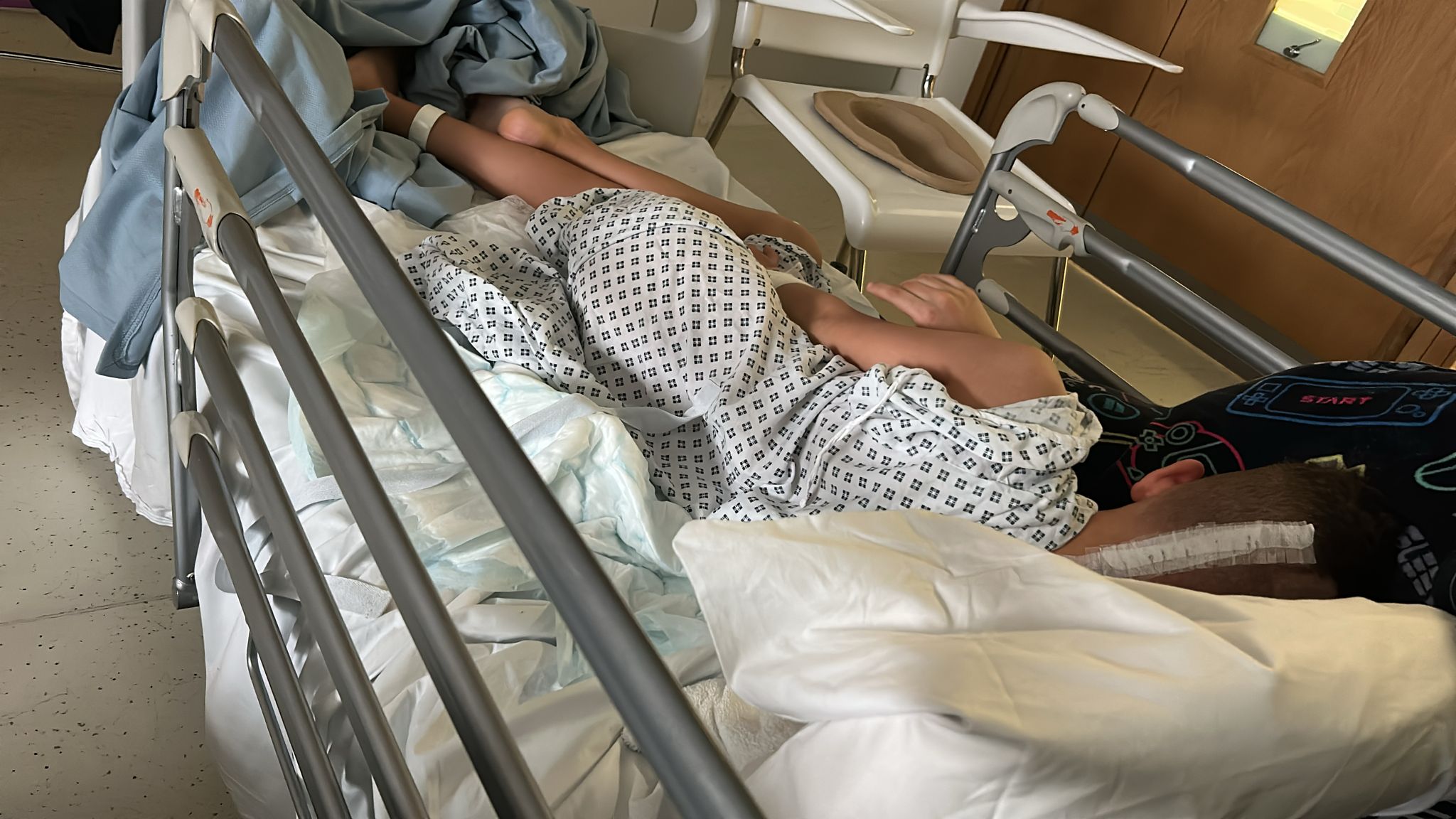
Ten hours later, with Harrison in recovery, Mr Silva came out to see them.
Steph said: “He was wearing a mask but had a big smile on his face and he said, ‘It’s all gone to plan, got it all out, couldn’t have gone any better’. That was the most amazing news.”
After some physio to address a slight weakness in his left side following the bleed, Harrison is back to a normal life and joined his classmates for a four-day school trip to Italy in June.
“It was unbelievable that 12 weeks after having potentially life-threatening surgery he was able to go on a trip to Rome,” his mother said.
“He was able to do sports day, all those things.
“He’s got a pretty big incision, it starts at the top of his head and all the way down to the back of his neck, way bigger than we thought.
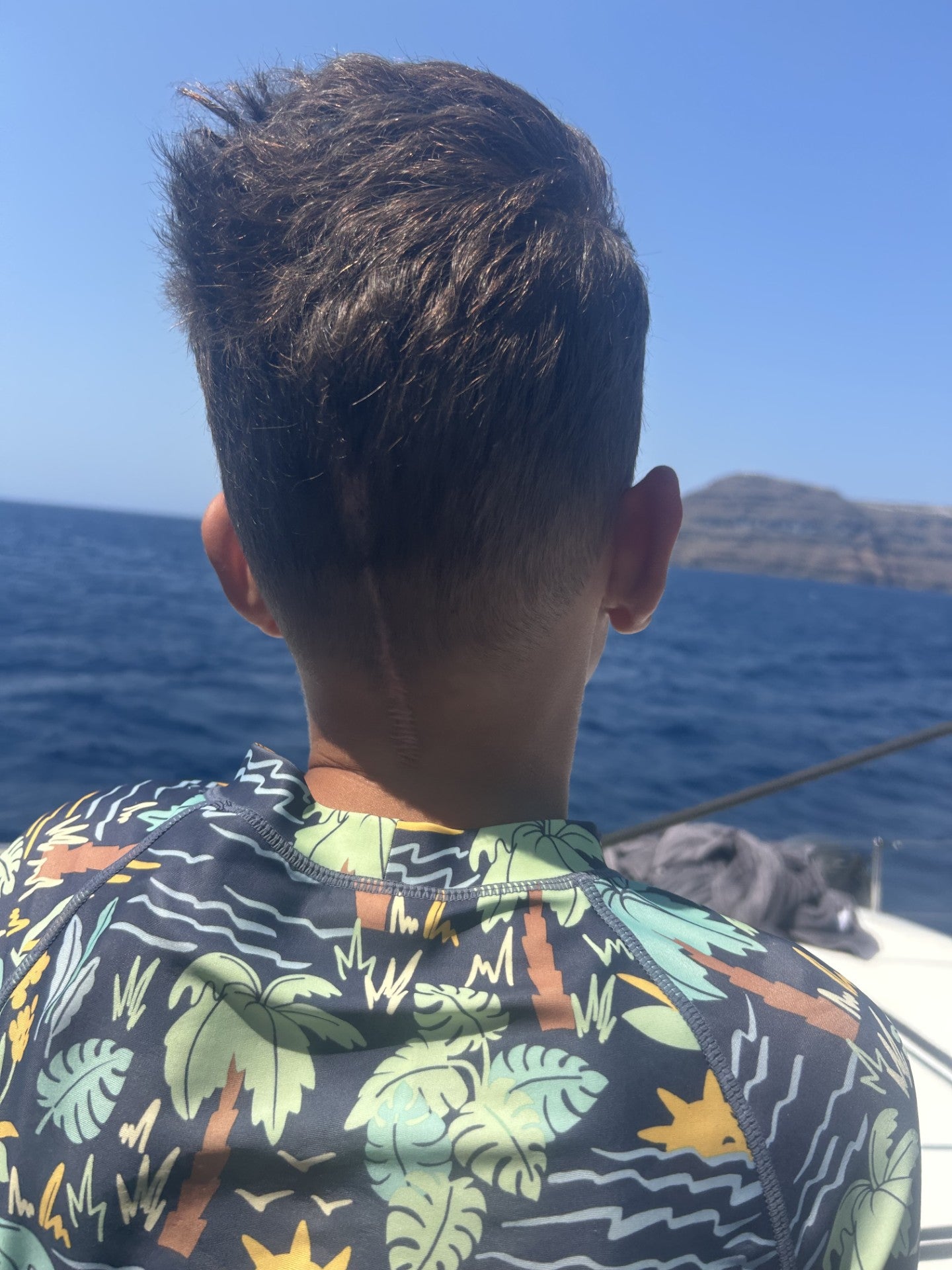
“He was quite self-conscious when we came home but we had a chat and I just said, ‘This is part of your story now, you should be proud of that incision because it saved your life’.
“When he went into school the first time, I caught him talking to his friends and he was like, ‘I’m the reverse Harry Potter, I’ve got a scar on the back’.
“He’s not self-conscious, he’s just like, ‘This has happened to me’.”
There is a slight risk that a new AVM could form while Harrison’s brain develops so he will have an MRI scan every year for next 10 years but the couple say they feel “so lucky”.
Harrison is settling into his new secondary school after celebrating his 11th birthday in August with a family holiday to Santorini.
“It’s a fresh start for him. He’s back to being a normal Year 7,” Steph said.
“His birthday was particularly poignant for us because we didn’t think we were going to get to his birthday.
“To see him jumping off boats and having no fear to do that was really special and emotional.”

The family will mark the anniversary of Harrison first becoming ill with a trip to Thailand for Christmas.
“The anniversary of it all starting, it will help to be away,” said Steph, an events planning manager.
“We were really lucky he was young and to have Great Ormond Street and to have the specialists there. We were in the best hands.”
Sam said: “We had a horrendous three, four months and you’ve got some parents go through two years, three years, 10 years, 20 years of stuff like this.”
He praised staff on Koala Ward and added: “Koalas are now my favourite animal, will be forever.
“Every human on that ward was just unbelievable.
“We just felt part of the family and everyone really cared.”
Sam, who is head of commercial for UK and Ireland for IMG, selling sports television rights, hopes to one day thank Arsenal fan Mr Silva by taking him to a match with Harrison.
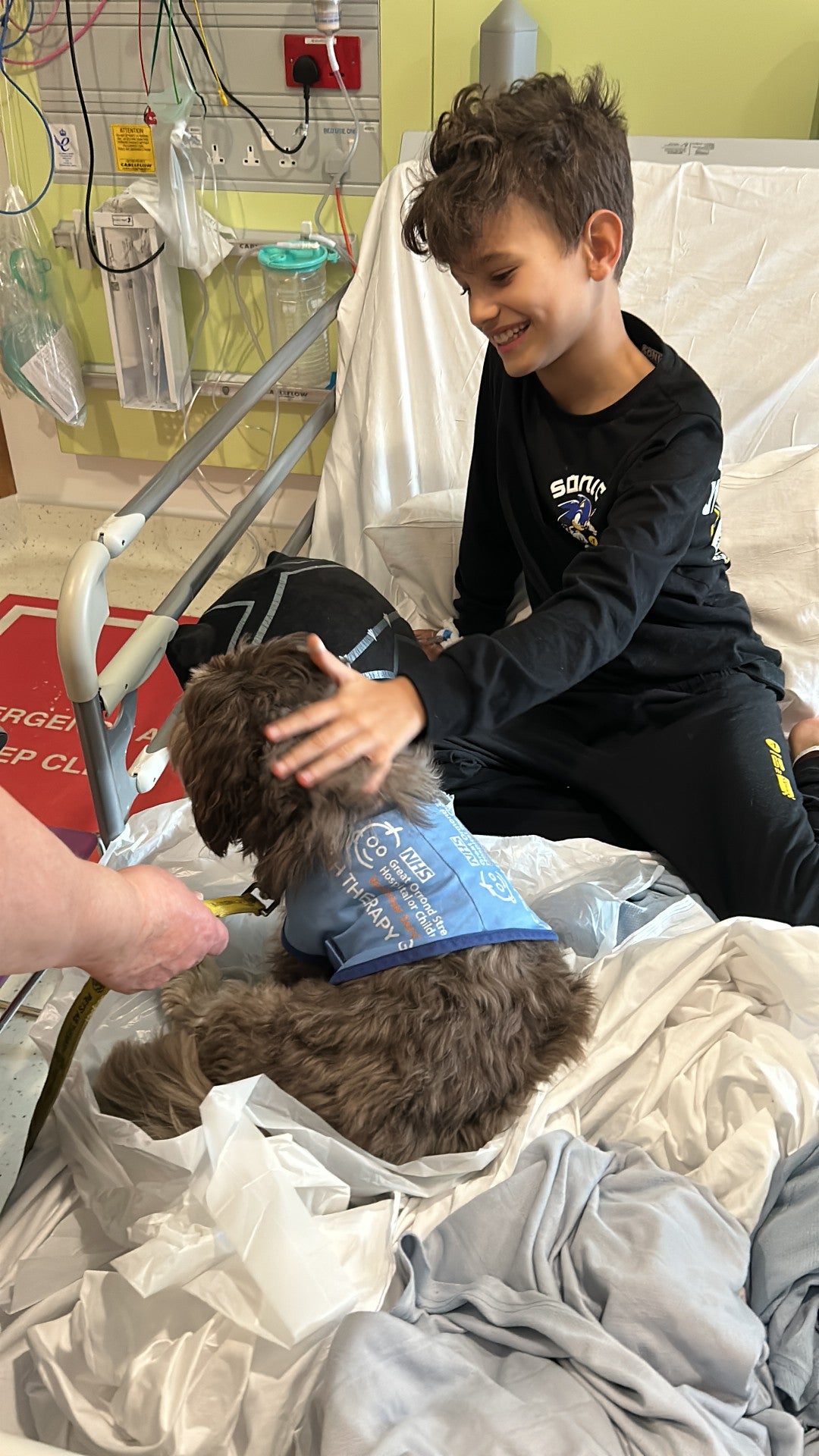
The family make a monthly donation to Gosh Charity, which supports the hospital, and have already raised more than £7,000 in sponsorship for the 5km RBC Race for the Kids.
“We chose this because we can all do it together. And it’s a really lovely family event,” Steph said.
“I think Harrison will feel quite proud about wearing a T-shirt and being part of the Great Ormond Street family now. It will be really nice, special, probably quite emotional.”
She added: “All of our friends have now signed up and they are bringing their dogs and babies in buggies. We went through this together, all of us were affected in some way.”
Sam said the hospital has been “the most important place in the world” for the family, adding: “We’re raising money but we’re celebrating at the same time.”
RBC Race for the Kids is raising funds to help Gosh Charity build a world-leading new children’s cancer centre at Great Ormond Street. To get involved or to find out more, visit race.gosh.org
To sponsor the Gale family, visit: https://race.gosh.org/fundraisers/teamharrison/rbc-race-for-the-kids
You may like
-
Naira Plummets for the Third Day in a Row: Shocking New Exchange Rate Hits N1,473.29/$!
-


Shocking Recall: Grocery Store Taco Kits Contain Hot Chocolate Packets!
-


Young Republicans Caught in Racist Group Chat Resign Following Shocking Revelations
-


Shocking Arrests: Four Charged in Murder of Osun Local Government Chair – What You Need to Know!
-


Lagos Pushes Back: Shocking Rejection of National Assembly’s Central Gaming Bill!
-


Shocking Revelations: Jonathan’s Fierce Attack on Successor for Neglected Bayelsa Projects!
HEALTH
Can’t Tell If It’s Covid or the Flu? Here Are the Key Symptoms You Must Recognize as Cases Surge!
Published
1 week agoon
October 16, 2025By
OBS
Health officials are warning of a seasonal surge in flu and Covid-19, with cases already starting to rise as autumn arrives.
But because the two viruses share many symptoms, it’s difficult to tell them apart.
When a sniffle seems to progress further than “just a cold”, it’s hard to know what it might be – but there are differences in how the viruses appear and the risks they pose.
Do I have Covid?
Covid-19 continues to cause serious illness, particularly among vulnerable groups. The virus is constantly evolving, with new variants spreading easily through coughs, sneezes or even conversation.
Vaccination campaigns each autumn continue to try to prevent hospitalisations and deaths.
The list of symptoms has shifted since 2020. Many people now experience cold-like symptoms, such as a runny nose, sore throat or blocked sinuses. But others still report fever or chills, a persistent cough, fatigue, headaches, shortness of breath, or a loss of taste and smell. Nausea and diarrhoea can also occur.
Doctors say a hoarse throat has become one of the hallmark features of the latest variants.
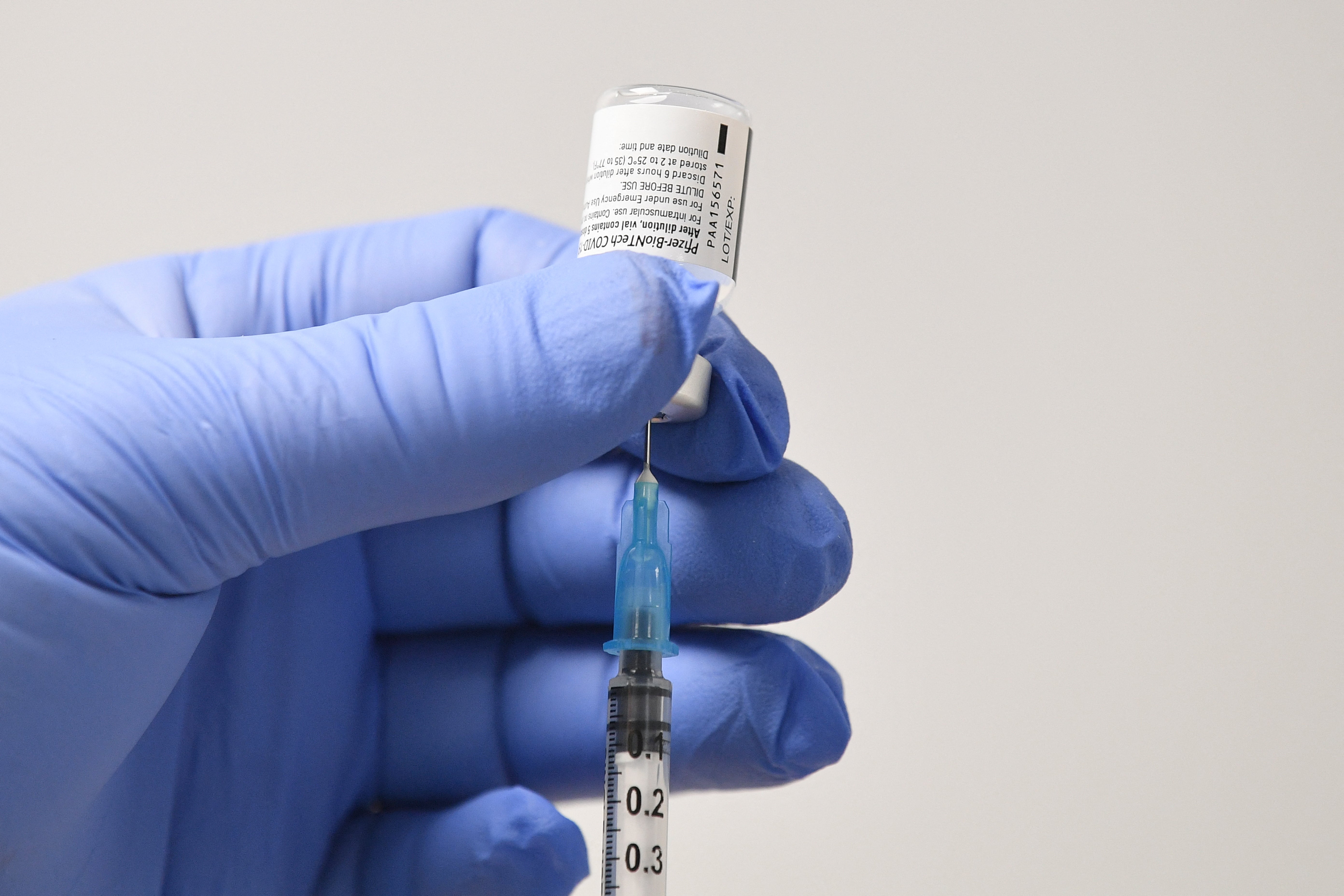
The latest strain, called Stratus, has two variants, XFG and XFG.3. Another recent strain, NB.1.8.1 nicknamed Nimbus, is also prevalent.
“Stratus is linked to hoarseness and fatigue, whereas Nimbus is associated with a ‘razor-blade’ sore throat and digestive symptoms like nausea and bloating,” explains Dr Bruno Silvester Lopes, lecturer in microbiology at Teesside University. “Both are highly transmissible but not more severe than previous variants.”
Despite accounting for a large proportion of new cases, experts are not concerned about the spread, noting it is normal for viruses to mutate and change.
Those aged 65 and over, care home residents, and people with underlying health problems are all entitled to the Covid-19 booster.
Do I have the flu?
Flu is a respiratory infection that strikes hardest in winter and can be far more debilitating than the common cold. While colds typically bring a runny nose, sneezing, watery eyes and mild throat irritation, flu tends to arrive suddenly with fever, aches and exhaustion.
Last winter alone, the flu sent more than 8,000 people to hospital. Over the past two years, at least 18,000 deaths in the UK have been linked to the virus. Children, older adults, people with long-term health problems and those with weakened immune systems face the highest risks.
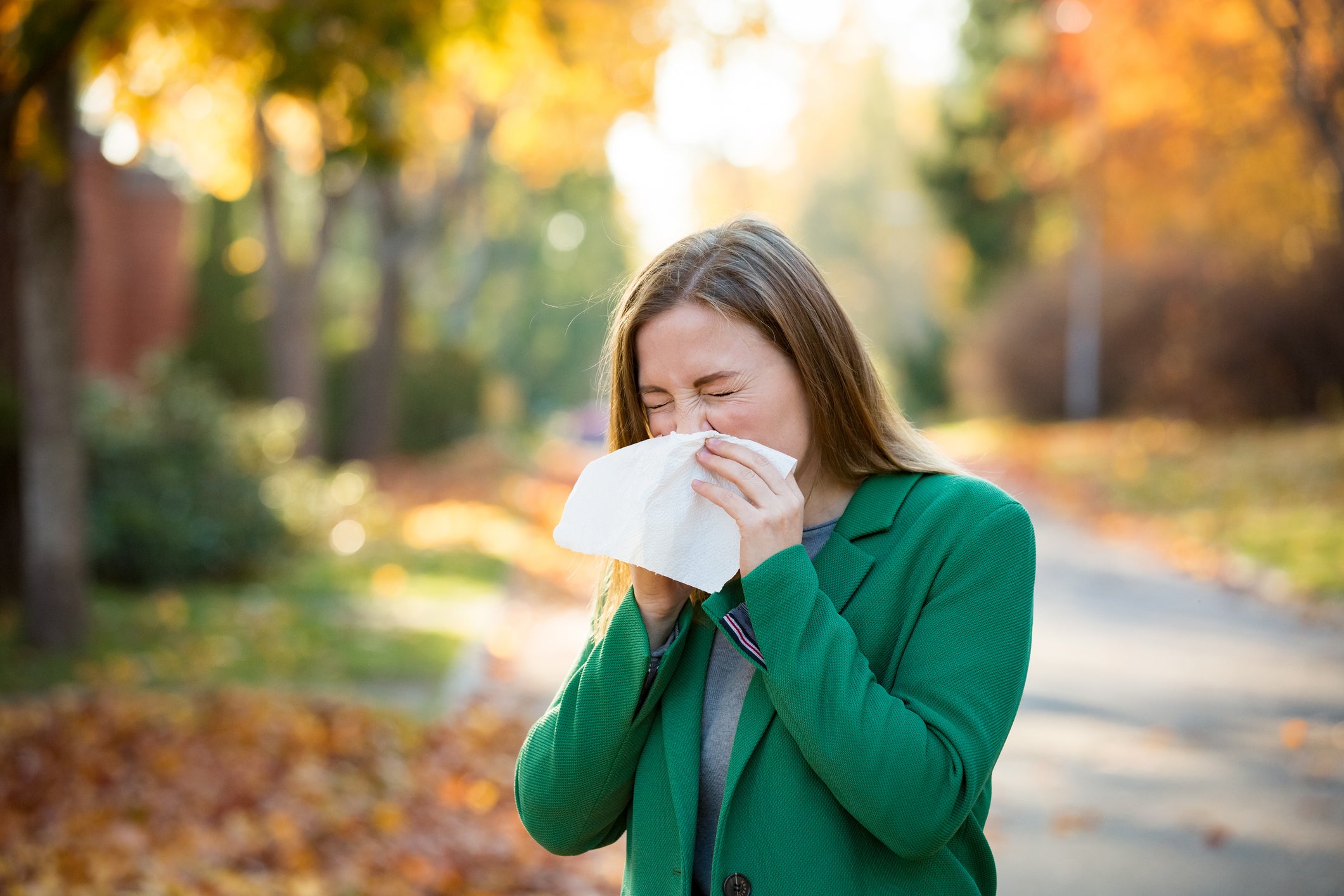
Vaccination remains the strongest defence. Research shows that last year’s jab prevented thousands of severe cases, cutting hospital admissions by almost a third among over-65s and by more than half among children aged two to 17.
This autumn, the flu vaccine is being offered free to those over 75, pregnant women, children aged 2 and 3 through their GP, and schoolchildren from reception to year 11 via nasal spray. Adults under 65 with certain health conditions are also eligible.
How to tell difference between Covid and a cold
Colds and Covid can be tricky to distinguish as many of their symptoms overlap.
“Both can give you a sore throat, runny or stuffy nose, sneezing, and coughing,” says Dr Chun Tang, a GP at Pall Mall Medical. “However, Covid can also cause fever, fatigue, muscle aches, and that telltale loss of taste or smell – although that’s less common with newer variants.
“Covid is also more likely to make you feel wiped out, like you’ve been hit by a truck, whereas a cold tends to stay in your head and chest.”
“Both spread mainly through droplets when someone coughs, sneezes, or even talks near you,” says Tang. “Covid, however, can also spread more easily through the air in tiny particles that linger, especially in crowded or poorly ventilated spaces.
“So, while a cold might need a bit of close contact to catch, Covid can sometimes sneak across the room if you’re unlucky.”
Are cases climbing now?
According to the UK Health Security Agency, levels of flu and Covid-19 are already on the rise running into winter, joining other seasonal bugs such as RSV and norovirus.
UKHSA reported an increase in the number of reported Covid diagnoses in its 9 October report, with the most prevalent strain noted as Stratus XFG. Flu activity was also increasing among young adults with a surge in emergency department attendances for flu-like illnesses.
Experts say the risk is highest during the colder months when viruses spread more easily indoors.
Officials are urging everyone eligible to take up their vaccines to reduce the strain on hospitals and protect the most vulnerable. Both flu and Covid-19 can be serious, but prevention and early awareness remain the best tools against them.
HEALTH
Shocking Recall: Grocery Store Taco Kits Contain Hot Chocolate Packets!
Published
1 week agoon
October 16, 2025By
OBS
The Giant Company is recalling its Giant and Martin’s-branded hard taco dinner kits after hot chocolate sachets were discovered inside the packages.
The mix-up, announced October 10, could pose a risk to consumers with milk allergies.
The recall affects the 9.4-ounce Giant/Martin’s Hard Taco Dinner Kit (UPC 068826757516) all lot and codes, with a best-by date of March 13, 2026.
Consumers with a milk allergy should not eat the kits. Anyone who purchased the affected product can return it to a nearby store with a receipt to receive a refund.
Milk allergy is a common food allergy in children, caused by cow’s milk or milk from other mammals, according to Mayo Clinic.
.jpg)
Reactions can occur soon after consumption and range from mild symptoms like hives, vomiting, and digestive issues to severe, life-threatening anaphylaxis.
The main treatment is avoiding milk and milk products. Most children outgrow the allergy, while others may need to avoid milk long-term.
Meanwhile, Sno Pac Foods, a Minnesota-based company, has issued a nationwide recall of its frozen spinach products due to potential contamination with Listeria monocytogenes, a bacterium that can cause serious infections.
The recall affects two products: Del Mar 35-pound Bulk Organic Frozen Spinach and Sno Pac 10-ounce Organic Frozen Cut Spinach. These products were distributed across various retail stores in the U.S. The recall was prompted after a bulk case of spinach from a supplier tested positive for the bacterium.
This same lot was used to repack the Sno Pac Organic Frozen Cut Spinach into 10-ounce bags. As a precaution, Sno Pac Foods has suspended production of these products while investigating the source of the contamination.
No illnesses have been reported in connection with the recalled products. However, Listeria monocytogenes poses a significant health risk, particularly to young children, the elderly, pregnant women, and individuals with weakened immune systems.
In healthy individuals, infection may cause short-term symptoms such as high fever, severe headache, stiffness, nausea, abdominal pain, and diarrhea. Pregnant women are especially vulnerable, as infection can lead to miscarriage or stillbirth.
HEALTH
Could Trump’s Meds Be Slowing Him Down? Expert Warns They Might Not Be Helping!
Published
1 week agoon
October 16, 2025By
OBS
An adviser to Health Secretary Robert F. Kennedy Jr. warned Wednesday that President Donald Trump may appear to be “slowing down” because of the medication he takes, as questions continue over the president’s mental and physical health.
In a speech to the European Parliament, Dr. Aseem Malhotra, a British cardiologist who advised the lobby group Make America Healthy Again, said that Trump, 79, may be suffering from fatigue due to his use of cholesterol medications, or statins, and aspirin.
“President Trump is taking statins; he’s on two cholesterol drugs… This man does not have any cardiovascular disease,” Malhotra said during a launch event for a new European health activism organization, Make Europe Healthy Again (MEHA).
“If you’re over 75 and have no cardiovascular disease, the benefit of statin is – are you ready? One in 446. You have to give the statin to 446 people to prevent one cardiovascular event,” he said. “In other words, no significant benefit.”
Malhotra, a vaccine skeptic whose anti-COVID shot and anti-statin views have been rebuked as misinformation by medical experts, has been a close ally to Kennedy.
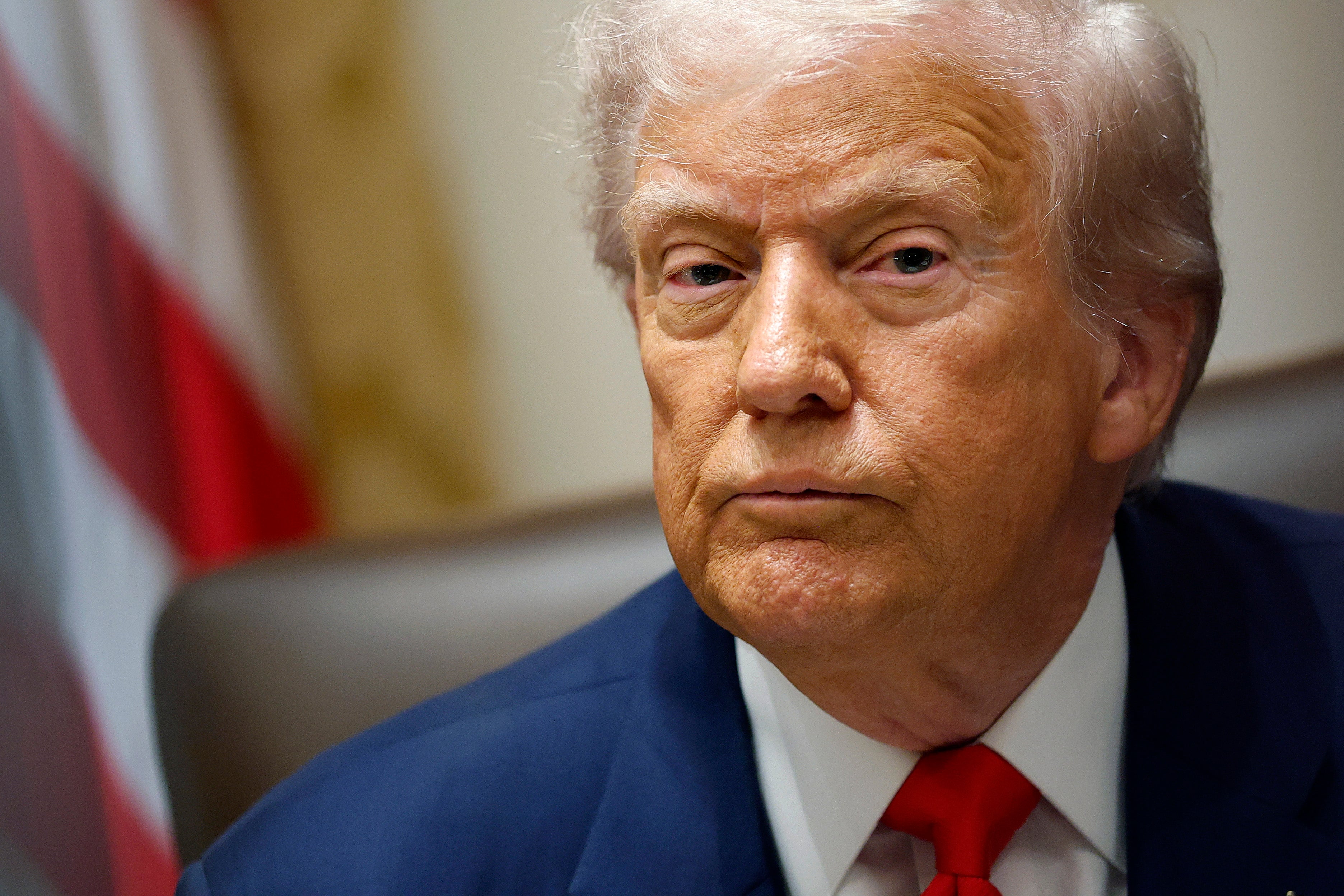
His comments come amid claims that the president may be showing signs of “cognitive decline,” due to mixing up names and other gaffes. Despite the speculation, the White House said last week that Trump was in “excellent overall health” following a “routine check-up” at Walter Reed Medical Center.
In addition to concerns about his mental acuity, Trump’s physical health has also come under question. The president has often been photographed with bruising on his right hand, raising concerns that he is suffering from some illness. The White House insists that this is a result of him shaking hands with a large number of people and his use of aspirin, which he takes as a cardiovascular protection.
White House officials revealed earlier this year that he had been diagnosed with chronic venous insufficiency, a non-life-threatening condition caused by the veins struggling to return blood to the heart. The condition is common for people over the age of 70.
During his remarks, Malhotra noted that cholesterol medication often comes with side effects, saying: “The most common ones are fatigue, muscle pain. It can cause brain fog.”
He added: “Now, I know that President Trump is a remarkable man for his age, but there have been reports – probably exaggerated by some sort of devious press for sure. But I know people who are close to him… and of course he is doing a tremendous job and maybe only sleeping four hours a night, and that may be part of it too, but it could also be that he’s slowing down a little bit because of his statins,” he continued.
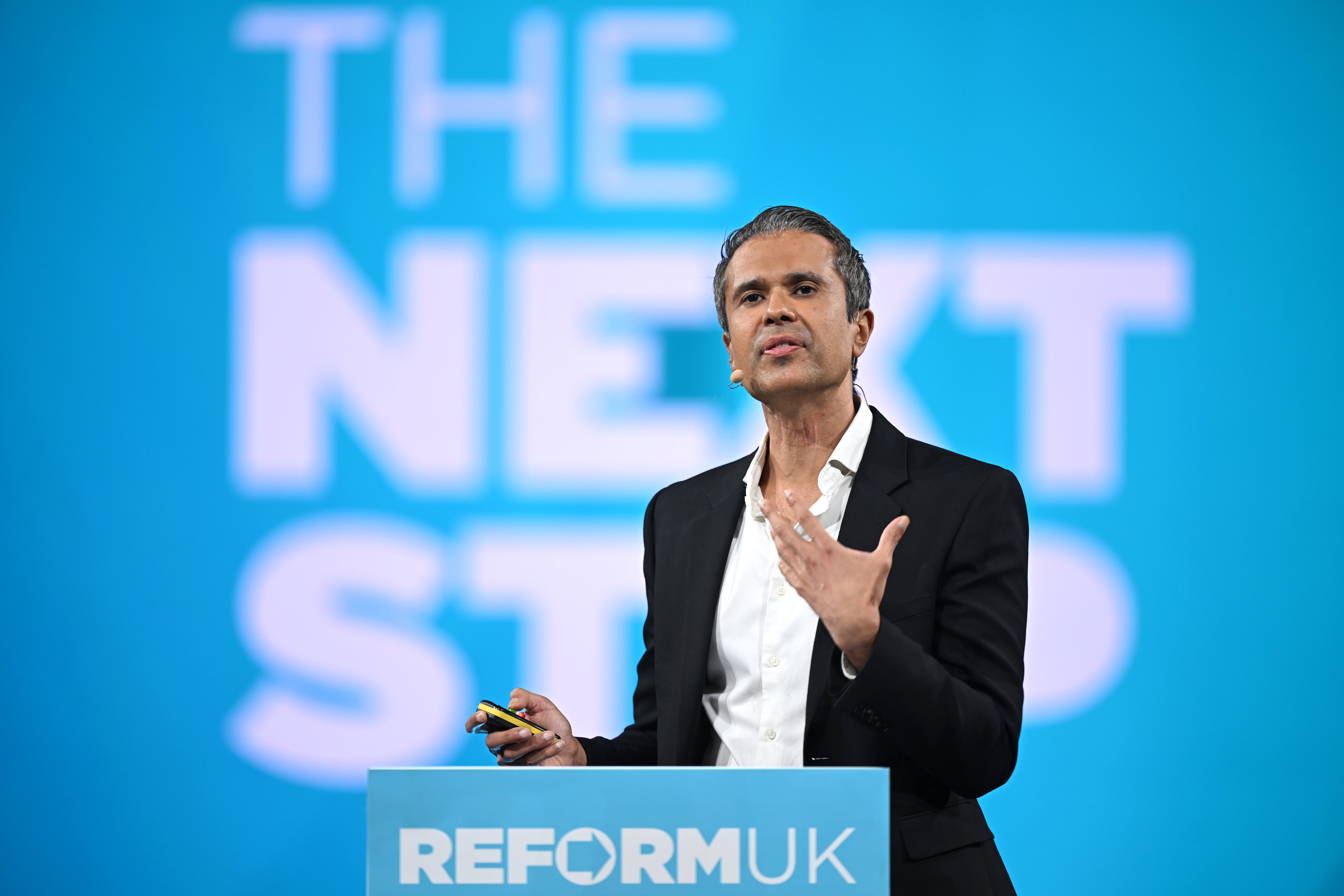
Malhotra then suggested that Trump go “off his statins, off his aspirin” and would be “feeling great” within a matter of weeks.
He was apparently so concerned about Trump taking the medications that he has reached out to several people close to the president to try and warn him against it, The Daily Beast reported Tuesday ahead of Malhotra’s public remarks.
In a statement to The Independent, the White House said: “President Trump is a champion-level golfer with the mental acuity and energy levels that most young people could not fathom having.”
“So-called medical ‘experts’, especially foreign ones with no relevance or involvement with the Administration, should stop beclowning themselves and marring their credibility by pitching their idiotic hot takes with Fake News outlets that have nothing better to cover,” White House spokesman Kush Desai said.

Along with Trump’s most recent gleaming health report, White House officials noted the president received a flu shot and an updated COVID-19 booster, which Malhotra called unnecessary.
“I think President Trump, I think he genuinely took the [COVID-19] booster, I don’t think that this is a front. I think he believes in what’s happening. He himself is also a victim of medical misinformation,” Malhotra said.
However, recent research shows that COVID shots protect against serious illness and death, especially for people over the age of 65. Researchers from the VA St. Louis Healthcare System looked at data from nearly 300,000 veterans and found that last season’s Covid vaccine reduced the risk of emergency room visits by 29 percent, hospitalizations by 39 percent and deaths by 64 percent for all ages, NBC News reports.
Combining all three outcomes, the shots’ overall effectiveness was 28 percent, making it similar to the flu shot, which ranges from 30 to 60 percent protective against severe illness or death.
An April health report also noted that Trump, who was the oldest person to ever take office in January at 78, was in “excellent” health.
The report also noted that Trump had high cholesterol that was being treated with the statin rosuvastatin and ezetimibe, a medication used to absorb cholesterol. He was also taking a low-dose aspirin as part of the treatment, his doctors said at the time.
While there is no evidence that statins alone cause dementia, the FDA added a safety warning to the medications in 2012 to warn of “notable, but ill-defined memory loss or impairment that was reversible upon discontinuation of statin therapy.”
Last month, Malhotra made headlines after suggesting – without evidence – that King Charles III may have gotten cancer because of the COVID-19 vaccine.
Categories
Top Tags
Related posts






















